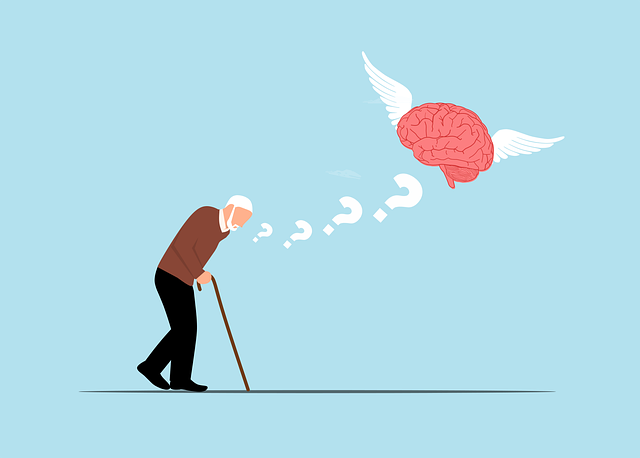Emotion regulation is a vital skill for Hebrew-speaking young adults, influenced by strong family and community ties. Customized therapy addressing their unique challenges, such as anxiety and societal expectations, incorporates culturally sensitive practices and traditional coping methods. Techniques like social skills training and open mental health discussions build resilient relationships and encourage help-seeking. "Therapy for Young Adults Hebrew Speaking" focuses on these specific needs, providing tools like mindfulness and cognitive reframing to enhance emotional intelligence and overall well-being through safe, guided practice sessions.
Emotion regulation techniques are essential tools for young adults, especially within Hebrew-speaking communities. This article explores a cultural perspective on understanding emotion regulation, offering insights tailored to these unique populations. We delve into practical strategies and techniques that empower individuals to manage their emotions effectively. Additionally, we provide valuable tips for therapists integrating emotion regulation training into therapy, ensuring optimal support for young adults seeking guidance in navigating their emotional well-being.
- Understanding Emotion Regulation for Young Adults: A Cultural Perspective (Focus on Hebrew-speaking communities)
- Techniques and Strategies: Practical Tools for Managing Emotions
- Integrating Emotion Regulation Training into Therapy: Tips and Best Practices
Understanding Emotion Regulation for Young Adults: A Cultural Perspective (Focus on Hebrew-speaking communities)

Emotion regulation is a vital skill for young adults, particularly within Hebrew-speaking communities where cultural nuances play a significant role in understanding and managing emotions. In these communities, strong family connections and communal support systems often shape an individual’s emotional development. However, navigating the complexities of adolescence and transitioning into adulthood can bring unique challenges. Young adults may struggle with issues like anxiety relief and adapting to societal expectations, which can impact their mental health awareness and overall well-being.
Cultural sensitivity is key when offering therapy for young adults in Hebrew-speaking communities. Therapists should be aware of the community’s values, beliefs, and traditional methods of coping. Incorporating cultural elements into emotion regulation techniques can enhance their effectiveness. For instance, social skills training tailored to the community’s norms can help young adults build resilient relationships, while promoting open discussions about mental health can foster a supportive environment, encouraging them to seek help when needed.
Techniques and Strategies: Practical Tools for Managing Emotions

Emotion regulation techniques are practical tools that young adults can learn to manage their emotions effectively. In therapy sessions for Hebrew-speaking individuals, various strategies are taught to help navigate the complex landscape of emotional experiences. These include mindfulness practices, cognitive reframing, and communication strategies tailored to individual needs. By integrating these techniques into daily life, young adults can enhance their emotional intelligence and foster better mental wellness.
The development of emotional regulation skills goes beyond mere coping mechanisms; it empowers individuals to communicate their feelings more assertively and build healthier relationships. Mental wellness coaching programs designed for this demographic offer a supportive environment where they can practice these strategies in a safe space. Through consistent exposure and guided exercises, Hebrew-speaking young adults can master emotional regulation techniques that will serve them well throughout their lives.
Integrating Emotion Regulation Training into Therapy: Tips and Best Practices

Integrating Emotion Regulation Training into therapy for young adults speaking Hebrew offers a powerful approach to empowering individuals with effective coping mechanisms. This process involves tailoring evidence-based techniques to suit individual needs, ensuring cultural sensitivity and relevance. Therapists can incorporate mindfulness meditation practices, encouraging clients to focus on the present moment and observe emotions without judgment. Self-awareness exercises, such as journaling or guided visualizations, promote introspection and a deeper understanding of one’s emotional triggers.
Best practices include creating a safe and non-judgmental therapeutic environment, where young adults feel comfortable exploring their emotions. Therapists should provide clear explanations and practical examples relevant to the clients’ lives. Gradually introducing new skills and providing regular reinforcement ensures better retention. Incorporating confidence-boosting activities alongside emotion regulation training can enhance motivation and self-efficacy.
Emotion regulation is a vital skill for young adults, especially within Hebrew-speaking communities. By understanding cultural perspectives and implementing practical techniques, therapists can effectively support this demographic in managing their emotions. Integrating emotion regulation training into therapy not only enhances the therapeutic process but also equips individuals with tools to navigate life’s challenges. For those seeking therapy for young adults Hebrew-speaking, these strategies offer a promising path towards emotional well-being and resilience.








